The last few years may have been turbulent for Vijay Mallya but that didn’t stop him from having fun, says Raghu Krishnan.

On March 1, among those milling around in Parliament was an independent member of the Rajya Sabha from Karnataka.
He could be seen talking to fellow lawmakers, making short conversations with them.
The next day, in a tweet, he asked people to vote for doctifyuk (an online platform that helps people search, compare and book doctors online) for the People’s Choice Awards.
His retweets during the day included one on Virat Kohli’s T20 performance, the West Indies cricket team’s preparations for the ICC World T20, and Martin Crowe’s death.
It was a normal day in office for Vijay Mallya.
Except on that day, he took Jet Airways’ flight 9W 122 from Delhi to London, with several large pieces of luggage, leaving behind a bunch of unsuspecting bankers, to whom he is said to owe Rs 9,000 crore (Rs 90 billion), and investigators who suspect him of financial misdemeanor.
The Supreme Court has issued a notice to Mallya with the next hearing on March 30.
As the rest of the country fretted and fumed over his departure, and employees of his mothballed Kingfisher Airlines made another impassioned plea for their dues, Mallya went about life as usual.
His tweets after leaving India, made from his home at Baker Street and his country home outside London, as NDTV found out, ranged from cricket, football, International Women’s Day, Formula One racing, and Kingfisher Buzz soda.

And on March 5, Captain Courage, Mallya’s three-year old stallion won the race at Chennai, its third victory in six races, and won the jackpot.
You have to hand it to Mallya: nothing really can kill his appetite for fun.
A Calcutta boy by education (La Martiniere School and St Xavier’s College), it could be said that Mallya’s eye-catching lifestyle was incubated in the city in its multi-cultural heyday.
His parents’ hospitality was famous among the city’s smart set and Mallya developed something of a “wild child” image, roaring around in fast cars and dating the most glamorous of ladies.
Over the years, the reputation gathered strength. “As long as I deliver shareholder value, no one has any business to tell me what I should do in my personal life,” Mallya had told a United Breweries shareholder when he called the company’s chairman a “playboy” during an annual general meeting in the early 2000s.
At that time, Mallya’s hegemony over Bengaluru was under threat from a bunch of techies led by the Infosys gang.
He was no longer the toast of town. That stung. “Only a handful of people have heard of Infosys.
But ask any man on the street and he will have heard of United Breweries,” he had told Business Standard in the summer of 2003 in the supercool environs of his house at Sardar Patel Marg in New Delhi, done up in Moroccan style.
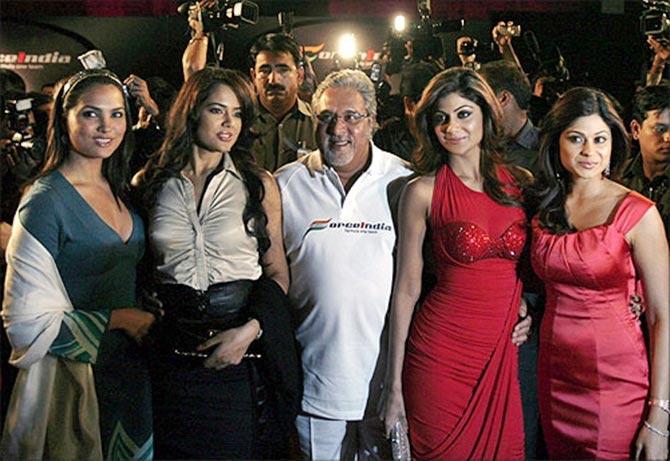
Copies of a film magazine he had acquired lay stacked on his table.
He countered the challengers with several initiatives: the Kingfisher Fashion Awards, conversion of a downtown factory into a luxury mall.
He said he would bring Formula One racing to Bengaluru and would build an elevated rail transit system for the city, none of which materialised.
Politics was the next logical extension. In 2002, Mallya entered the Rajya Sabha from Karnataka.
Subsequently, he became the working President of Janata Party. Used to travelling in air conditioned vehicles, Mallya hit the dust-filled roads in the sweltering summer of 2004 across the state to canvass support for his party in the general elections. All his efforts came to naught: Janata Party drew a blank.
This need for societal prominence, to be in the public eye at all times, say his friends, was one reason why he launched Kingfisher Airlines on the 18th birthday of his son, Siddhartha.
That was Mallya’s magic at its peak. While taking delivery of the first planes, with the Kingfisher insignia, video displays on each seat and more leg space for passenger comfort, at the Airbus plant at Toulouse, Mallya refused to allow Airbus staff to be part of the show. It was his day and he didn’t want to share the glory with anybody.
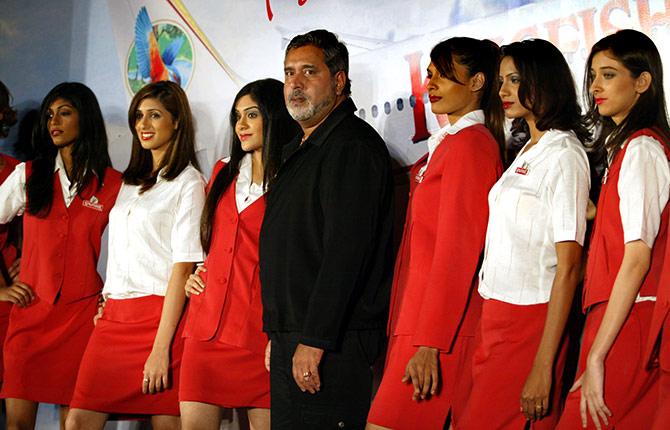
A few days later, Mallya flew in the planes and sent them to circumambulate the Balaji temple at Tirupati for prayers before pressing them into service.
He personally chose airhostesses, made in-flight announcements, hired expensive foreign pilots, got five-star chefs to create menus and started lounges at airports for passengers. Glamour was the USP of his airline.
And, then he decided to acquire Air Deccan from Captain GR Gopinath in 2007 in the hope that it would help him fly abroad soon (government rules forbid airlines younger than five years from doing overseas flights). As can be expected, the deal was concluded amid much drama.
Air Deccan had two suitors: Mallya and Anil Ambani.
Though Ambani’s team had carried out the due diligence, the deal was getting delayed because, Gopinath was told, similar negotiations were being held with another airline.
In desperate need of money, Gopinath dialled Mallya.

From his yacht, the Indian Empress, in Monte Carlo, without going through the books of Air Deccan, in the midst of a party, Mallya agreed to all the conditions Gopinath put and checked into the airline in less than a week.
Kingfisher Airlines’ licence was suspended in late 2012.
It had gone bankrupt. That forced Mallya’s exit from his once-sprawling liquor business.
Till months before the suspension of the licence, Mallya mocked all talk of financial trouble.
On January 10 2012, he tweeted: “Looks like certain media houses are on a paid and highly motivated mission to discredit Kingfisher (Airlines) and encourage shift of traffic (to other carriers).”
Still, there was discernible bitterness in him. In March 2012, Mallya took a potshot at Gopinath, who he realised had sold him a lemon: “Ask [the] media — why no expert reaction fr[o]m Capt Gopinath on [the] railway budget. He has great surface transport experience [for] both passengers and cargo.”
In August, he retweeted twice journalist Barkha Dutt’s outbursts at delays on IndiGo flights.
In October, when asked if his private jet was being impounded by the cash-strapped airline’s creditors, he snapped: “You believe Indian papers have any credibility?”
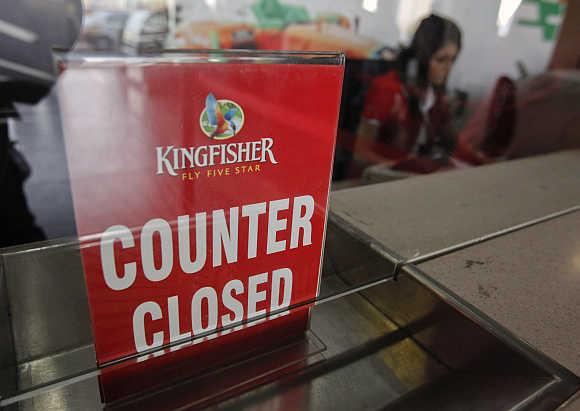
In late October, Forbes removed the billionaire tag from Mallya’s name as his net worth had fallen from $1.1 billion to $800 million, thanks to his troubled airline. Mallya reacted on Twitter: “Thanks to the Almighty that Forbes has removed me from the so-called billionaires’ list.”
It would cause, he hoped, less “jealousy, frenzy and wrongful attacks.”
And he became more religious. Mallya started doing the rounds of temples: he offered Rs 80 lakh worth of gold-plated doors at Kukke Subrahmanya, three kilograms of gold at Tirupati and did the rituals at Kollur, a temple near Mangaluru, not to mention his annual pilgrimage to Sabarimala in Kerala.
In spite of all the trouble he faced, Mallya remained unapologetic about his lifestyle.
As he was getting bad press in the country, Mallya, according to his friends who had confided in Business Standard three-and-a-half years back, took his parties abroad: his vineyard in South Africa and his yacht in Monte Carlo.
One such party aboard the Indian Empress was attended by, among others, Bernie Ecclestone and Antonio Banderas.
For his 60th birthday in December, which he called his third 20th birthday, Mallya flew in Enrique Iglesias to perform at his villa overlooking the beach in Goa.

As the noise from the fireworks and music subsided, and only the sea broke the calm, Mallya opened up to a few friends, recounting his journey from boom to bust.
“It was almost like his last big party that would never happen again,” says a person who was at the bash.
Mallya’s only regret was that his son Siddhartha was not interested in pursuing the family business, the person says. That little was left of it is a different matter.
Siddhartha is a chip off the old block. In 2012, when Kingfisher Airlines was gasping for breath, he had hired celebrity-management firm KWAN to find him brands to endorse.
Mid-September, as Kingfisher Airlines employees went vocal about their dues, he walked the ramp for designers Shantanu and Nikhil Mehra, arriving in Goa for the shoot of “The hunt for the Kingfisher calendar girl 2013”, playing volleyball on the beach with 12 bikini-clad women and requesting all to vote for him for the “GQ most stylish man of the year crown”.
Then he left India for Los Angeles to pursue a career in acting. He registered himself as Sid with the Screen Actors Guild so that he could “avoid getting typecast”. He told Business Standard in an email in 2014 that he always wanted to act, and be in the entertainment business.
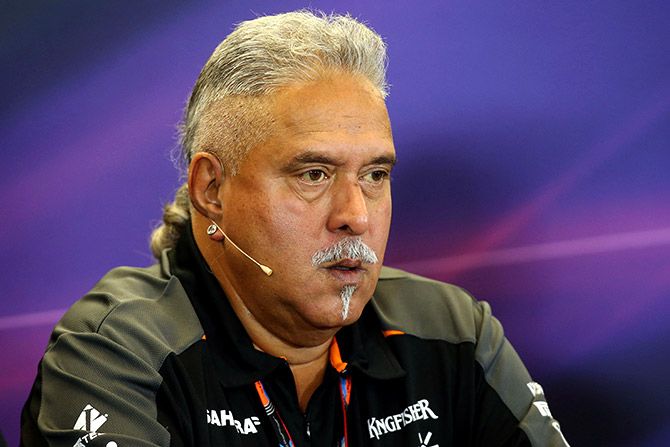
“Maybe it’s a case of the ‘only child syndrome’ and always wanting to be the centre of attention,” he said.
In the status message on his twitter handle, Siddhartha calls himself a “future legend and terrible speller”.
He is now pursuing a drama course in the UK and has signed up two Hollywood films.
A look at Mallya’s life story suggests that he won’t give in without a fight.
His rivals from the days when he fought with Manohar Rajaram “Manu” Chhabria for the control of Shaw Wallace often recount what a formidable foe he turned out to be.
More than a street fighter is how they describe him.
Among the rumours - never proven - that did the rounds of Calcutta’s business district at the time was one that the original deal was for Mallya and Chhabria to make a joint acquisition of this cash-rich liquor company.
At any rate, when Mallya eventually acquired it 20 years later in 2005, many considered it poetic justice.
Even now, Mallya is fighting tooth and nail every charge hurled at him.
In December, he got a stay order from the courts on United Bank of India declaring him a willful defaulter on technical grounds: the committee that took this decision had four members instead of the mandated three.
He has contested a similar move by State Bank of India in the Supreme Court.
“I have been running from pillar to post, from Mumbai to Kolkata to Bengaluru, to get my money,” said SBI counsel George Joseph in his arguments at the Debt Recovery Tribunal.
Last month, Punjab National Bank declared Mallya a willful defaulter. United Breweries (Holdings), Mallya’s holding company, had a quick retort: “The company is in consultation with its legal counsels to challenge the decision by taking appropriate legal action that may be required in this regard.”
As the government, mortally scared of the suit-boot ki sarkar tag, comes under pressure to bring him to book, Mallya remains combative.
His rage against the media (one news anchor in particular) exploded on Twitter on Friday. “Once a media witch hunt starts it escalates into a raging fire where truth and facts are burnt to ashes,” he wrote.
“Let media bosses not forget help, favours, accommodation that I have provided over several years which are documented.”
Desperation of a cornered man? You decide.



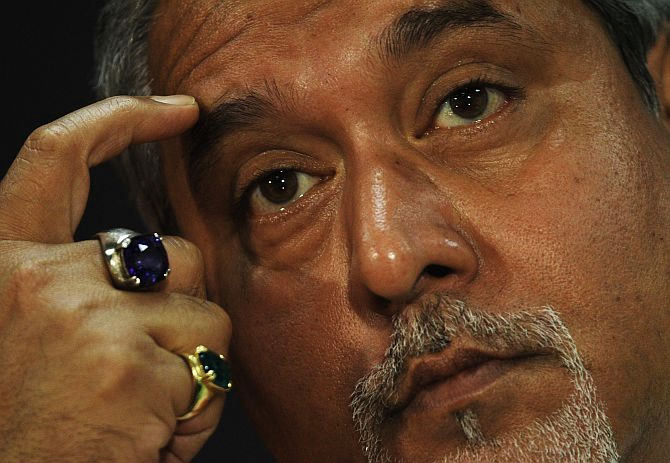





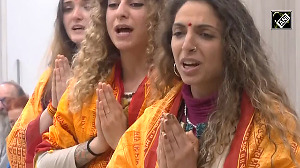
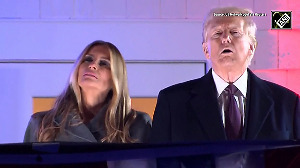
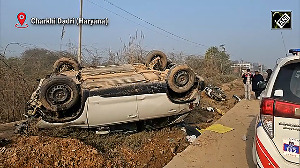
 © 2025
© 2025